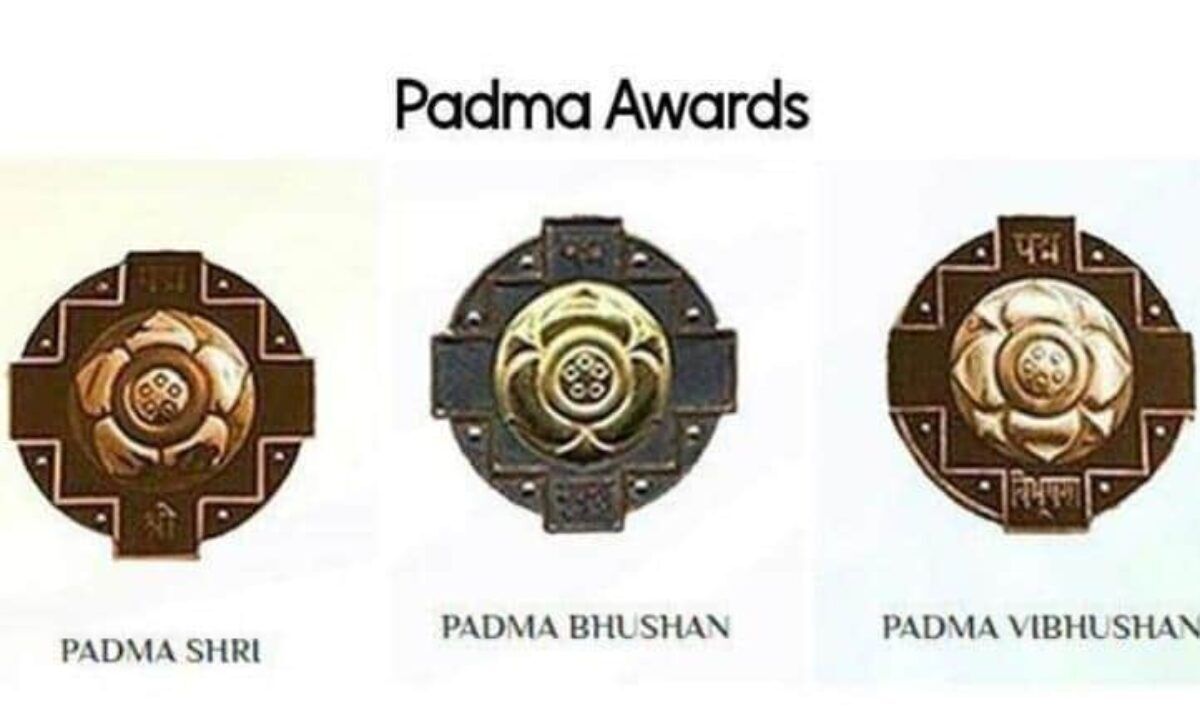Mark of honour

In continuation with the norm, the President of India awarded Padma Awards to 128 individuals from different fields for their achievements related to public service. Instituted in the year 1954, Padma Awards are just next to the highest civilian award in India — the Bharat Ratna, instituted in the same year. Initially, the Padma Awards were categorized as Pahela Varg, Dusra Varg and Tisra Varg which were rechristened a year after as Padma Bhushan, Padma Vibhushan and Padma Shri respectively. Padma Vibhushan is given for exceptional and distinguished service, Padma Bhushan is conferred for distinguished service of higher order and Padma Shri is awarded for distinguished service in any field. The awards have been conferred each year since then on Republic Day except 'brief interruptions' in 1978, 1979 and 1993-97. Unlike the Bharat Ratna, the nominations for Padma Awards are open to the public and even self-nomination is allowed. This year, the President conferred four Padma Vibhushan, 17 Padma Bhushan and 107 Padma Shri Awards. The recipients of Padma Vibhushan Awards include: Prabha Atre from Maharashtra in arts category; Radheyshyam Khemka of Uttar Pradesh in literature & education category; General Bipin Uttarakhand for his contribution in Civil Service; and Kalyan Singh of Uttar Pradesh for his works in public affairs. Three of the four awardees (other than Prabha Atre) have been conferred posthumously. Normally, the awards are not conferred posthumously unless there are 'highly deserving' cases. General Bipin Rawat's illuminating contributions to the country surely pass the test. Among the entire pool of 2022 Padma awardees, 10 persons belong to the Foreigners/NRI/PIO/OCI category and 13 are awarded posthumously. The rules allow for a maximum of 120 awardees — excluding the posthumous and NRI ones. Among the Padma Bhushan awardees, trade and industry appeared to be a focus area. Satya Narayana Nadella, Sundararajan Pichai, Cyrus Poonawalla and the duo of Krishna Ella and Suchitra Ella — two of whom are NRIs — were awarded in this category. Pratibha Ray (Odisha), Swami Sachidanand (Gujarat) and Vashishth Tripathi (Uttar Pradesh) were awarded with Padma Bhushan in literature and education category. Sports could also garner one Padma Bhushan in the name of Rajasthani para-athlete Devendra Jhajharia. Other notable names include Ghulam Nabi Azad (Jammu and Kashmir), Victor Banerjee (West Bengal), singer Gurmeet Bawa (Punjab) etc. It is good to note that emerging categories like sports are gaining greater acceptance. Apart from Devenedra Jhajharia, some other national sports heroes including Neeraj Chopra, Sumit Antil, Pramod Bhagat, Avani Lekhara and Vandana Katariya were awarded Padma Shri. Padma Awards also recognised stalwarts like Sankaranarayana Menon Chundayil and Brahmanand Sankhwalkar. The 93-year-old Sankaranarayana Menon Chundayil is the oldest living member of the Mudavangattil family that teaches modern Indian martial arts — Kalari. Brahmanand Sankhwalkar had captained the Indian football team from 1983-86 and was a star goalkeeper then. Such a holistic approach to recognise the contributions of those who are fresh in their respective fields along with those who are mostly forgotten is indeed laudable. The conferment of 2022 Padma Awards also saw some mild controversies. Stalwart Bengal politician and ex-CM of West Bengal Buddhadeb Bhattacharjee was conferred Padma Vibhushan in the category of Public Affairs but he declined citing that he was not informed about any such thing. 90-year-old legendary singer Sandhya Mukherjee also declined Padma Awards saying it has come too late and without much respect. These denials reflect that there is scope for the government to modify the process in a way that would allay the concerns of these geniuses. In the meantime, conferment of Padma Bhushan Award to Gulam Nabi Azad has stoked a controversy within congress itself. His service to the nation is undeniable. There is a need to go beyond party lines and see the awards in a broader perspective. Padma Awards are part of an established institution and should be seen separably from the political party in power. An awardee should see himself / herself as being grateful to the nation and the people — whom their services were meant to benefit — and not the party in power. Certainly, the awardees don't owe allegiance to the ruling party. It is true that work is a reward in itself but the acknowledgement and recognition of the same makes it more meaningful. All the awardees deserve to be congratulated.



